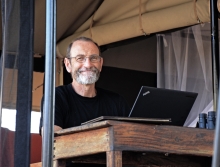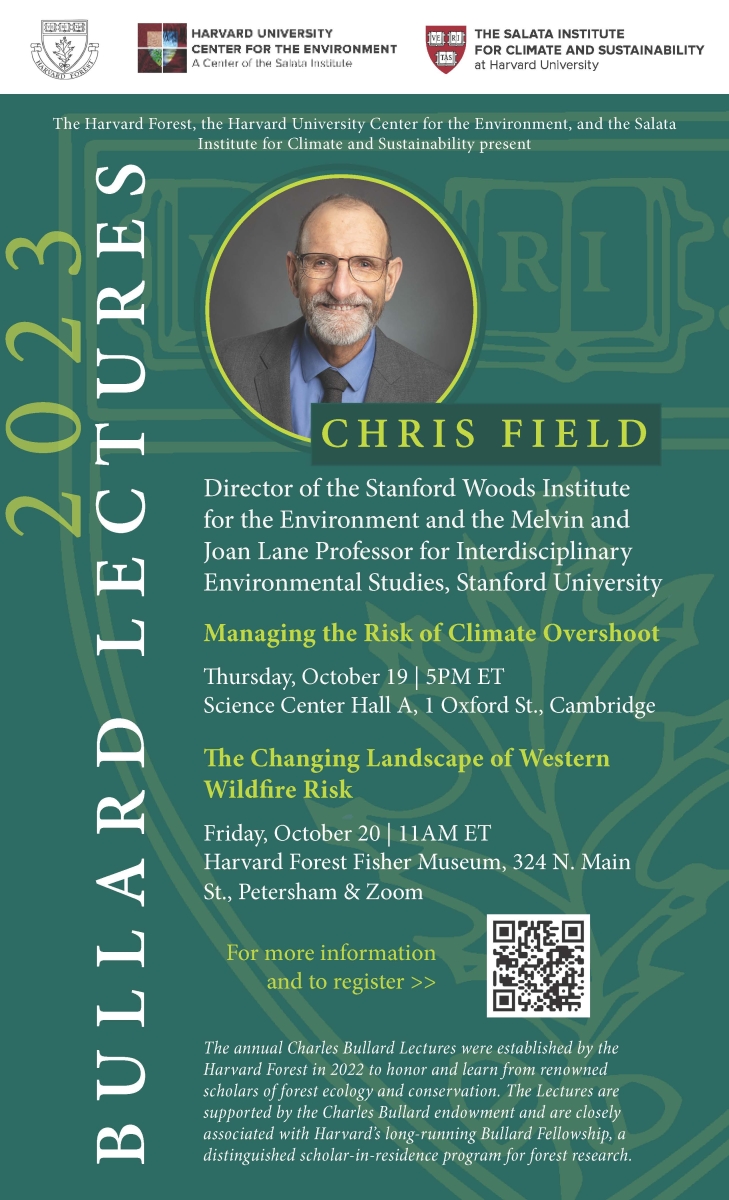You are here
October 19+20: Chris Field to Present Bullard Lectures

The Harvard Forest and the Harvard University Center for the Environment were delighted to co-present the second Charles Bullard Lectures featuring Dr. Chris Field, the Perry L. McCarty Director of the Stanford Woods Institute for the Environment and the Joan Lane Professor for Interdisciplinary Environmental Studies at Stanford University.
Learn about Chris Fields' talk at Harvard Forest in the Harvard Crimson.
The annual Charles Bullard Lectures were established by the Harvard Forest in 2022 to honor and learn from renowned scholars of forest ecology and conservation. The Lectures are supported by the Charles Bullard endowment and are closely associated with Harvard’s long-running Bullard Fellowship, a distinguished scholar-in-residence program for forest research.
Managing the Risk of Climate Overshoot | Watch recorded lecture
Thursday October 19; 5:00pm | Harvard University Science Center – Hall A, 1 Oxford Street, Cambridge
By some measures, progress on tackling climate change is breathtaking. Deployment of renewable energy is surging, and prices are falling across a wide range of technologies. On the other hand, global scale emissions of greenhouse gases are not decreasing, and the prospects for meeting the goal of the Paris Agreement are dimming rapidly. Approaches for managing the risk of missing the goal of the Paris Agreement, or Climate Overshoot, should be core elements of future climate action. These fall into an action agenda with four components – cutting emissions, adapting, removing greenhouse gases, and exploring sunlight reflection. These four approaches, which can be summarized with the acronym CARE, all require increased financial and policy support, as well as a framing consistent with the emergence of a broad, durable political and social coalition.
The Changing Landscape of Western Wildfire Risk | Watch recorded lecture
Friday, October 20; 11:00am | Zoom and Harvard Forest Fisher Museum, 324 N. Main Street, Petersham
Registration not required for in-person event
Wildfires in the West have exploded in recent years, leading to hundreds of lost lives, billions of dollars in property losses, and, for many people, a fundamental rethinking about the prospects for the region. Climate change, fuels management, and the number of people in fire-prone regions are interacting to increase risk. Some of the options for risk reduction are reasonably well understood and ready to deploy. Others require not only more research but also deep conversations about the kinds of human/environment interfaces we want. Questions about strategic relocation, redesigning the urban-wildland interface, and changing the fundamental character of ecosystems all need to be addressed.


